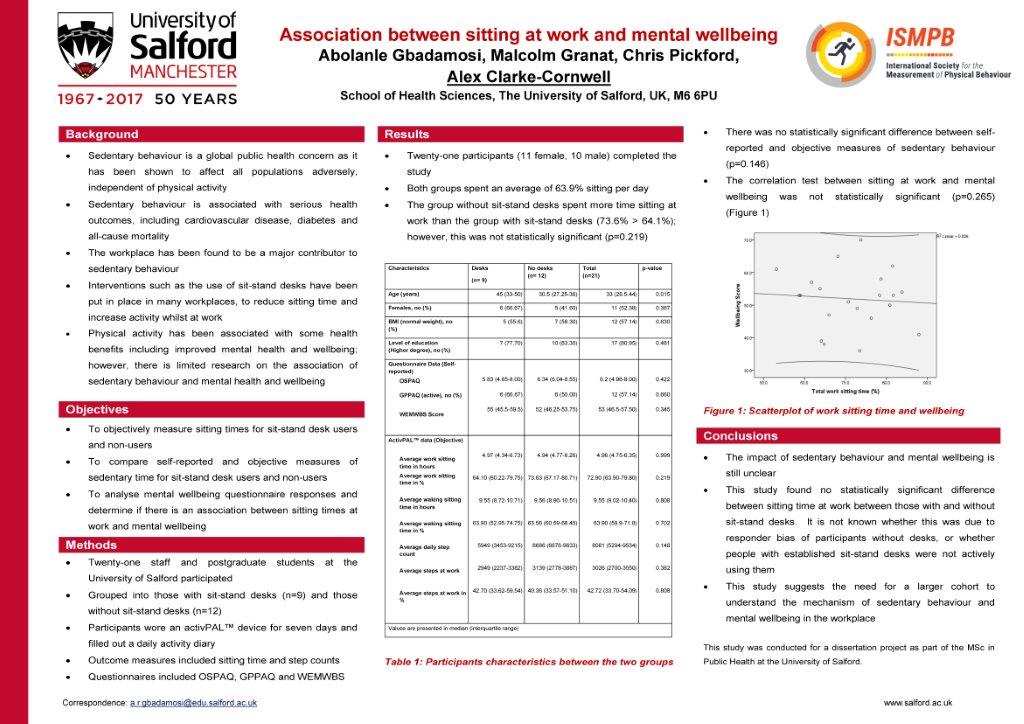The first transition for me was moving from my home country, Nigeria, to England to study – it was very daunting to begin with. The initial decision to come to England to study for a Masters was very different from the decision I made to stay to further my studies and start a PhD. When I came to England to study for my Masters, I wanted to gain further skills and knowledge – the decision was based on the challenge to get better academically, and in turn to inform my future career path. The decision to further my education and embark on a PhD was based on the skills and knowledge I had acquired during my Masters degree. The wide range of resources available to students to make learning convenient at the University of Salford was beyond expectations. As a postgraduate student, I had unlimited access to an extensive range of books, e-books, journal articles, and government publications to help me study, as well as request for articles that are not licensed to the University.
The major influence in deciding to apply for a PhD was based on the final semester of my Masters programme, when I conducted a research study for my dissertation. The research study examined the associations between sitting at work and mental wellbeing. I loved the idea of looking into a problem and trying to find out as much as I could about it, and looking into something that there was little previous research on. That’s the joy of being a researcher (although it is not always as simple as it sounds!).
The progression from a postgraduate taught degree to a postgraduate research degree is a big step in one’s education, because the doctorate degree is seen as the highest level of educational achievement. The move from a ‘regimented and structured’ life of a taught programme to the ‘unstructured’ life of a PhD can be scary. This is because the structure of deadlines and assignment submissions is no longer there – you have to carefully plan your own time and set your own targets. It can be quite overwhelming at times, sitting in an office every day of the week, rather than attending classes for two to four hours every day. I am in an office with other PhD students, many of whom are working in studies that are not related to my field – this can make the PhD journey lonely at times, but also interesting because I get to learn about things outside of my own area of research.
When I started my PhD, all of a sudden I was exposed to all these opportunities and changes. The PhD involves independent research and that means a lot of input from me as a researcher – like I said, it can be quite scary if you face it all alone. The University has provided various workshops and study skills sessions to help me adapt to the system, without feeling too overwhelmed! Also, there is an allocated staff member to stand in as a personal tutor to help discuss any issues that may affect one’s studies. I have made use of these resources and intend to keep making use of them. So far so good, it’s been an interesting journey and I hope it will get even better!
In the first year of Abolanle’s PhD, she has had the work from her Masters study accepted at the International Conference on Ambulatory Monitoring of Physical Activity and Movement (see poster), and has recently submitted work from her first PhD study to the International Society for Physical Activity and Health Congress.



why did you change country?